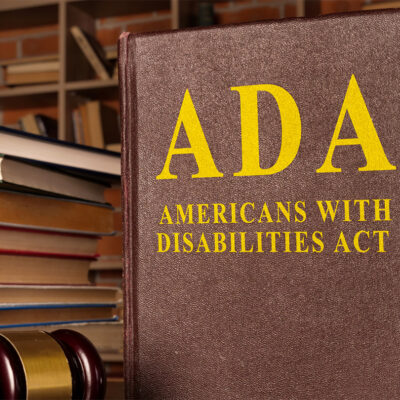Grantee Resources
To ensure that JMHCP and Connect and Protect-awarded grantees produce better outcomes for people in contact with the criminal justice system who have mental health and co-occurring substance use disorders, the Bureau of Justice Assistance and the CSG Justice Center provide them with resources, tools, and guidance.
Find resources below that can aid grantees in developing and sustaining their programs, including grant orientation webinars, planning and implementation guides, and direct links to Bureau of Justice Assistance’s website for more details.
Orientation webinars
Review JMHCP and Connect and Protect orientation webinars to get information on the training and technical assistance opportunities and resources available, as well as an overview of the post-award grant management requirements.

FY24 JMHCP, Connect and Protect, and Youth JMHCP Orientation
Mental Health

FY23 JMHCP and Connect & Protect Orientation Webinar Part 2: Budget, Grant Management, and Performance Measurement
Law Enforcement, Mental Health, Co-Occurring Substance Use, Police-Mental Health Collaboration

FY23 JMHCP and Connect & Protect Orientation Webinar Part 1: Grant and Training and Technical Assistance (TTA) Information
Law Enforcement, Mental Health, Co-Occurring Substance Use, Police-Mental Health Collaboration
Planning & Implementation Guides
Look through guides from the CSG Justice Center that are designed to support recipients of JMHCP and Connect and Protect grants administered by the Bureau of Justice Assistance. While these guides are not intended to serve as a step-by-step blueprint, they help grantees foster discussion on best practices, identify considerations for their collaborative effort, and help them work through key decisions and implementation challenges.
Coming soon!
Helpful Webinars for Grantees

Mind Matters: Building a Justice System That Is Inclusive and Responsive to Brain Injury
Mental Health

Centering Lived Expertise: Elevating People Impacted by the Criminal Justice and Behavioral Health Systems
Crisis Systems, Mental Health

Ask the Expert: Community Supervision Series
Community Supervision, Mental Health

Best Practices to Promote Scene Safety During Mental Health Crises
Crisis Systems, Law Enforcement, Mental Health

Aligning Health and Safety: A New Tool for States to Transform Behavioral Health and Justice Systems
Co-Occurring Substance Use, Courts, Mental Health, State Policy, & Sustainability

Addressing Americans with Disabilities Act Obligations and Access to Care in the Justice System
Race and Equity, Mental Health, Co-Occurring Substance Use

From Corrections to Community: Navigating the New Medicaid Section 1115 Demonstration Opportunity, Part 1
Mental Health

Using Responsivity Principles to Attain Better Results for People with Behavioral Health Needs in the Justice System
Mental Health, Co-Occurring Substance Use, Sustainability
Grant Solicitations
Visit OJP.gov to learn about federal grant funding opportunities and how JMHCP can support justice and mental health partnerships in your community. You can also view the current funding information page.
Successful Grantee Examples
FY2021 JMHCP Awardee: Durham County, North Carolina
The Durham County Criminal Justice Resource Center (the lead applicant and mental health partner) is collaborating with the Durham County District Attorney’s office to enhance the capacity of the county’s mental health court and . The Mental Health Court Expansion Initiative (MHCEI) will address two program-specific priority areas: (1) promoting effective strategies to expand the use of mental health courts and related services; and (2) using a validated assessment tool to identify and prioritize individuals with a moderate or high risk of recidivism and a need for mental health treatment.
MHCEI reduces critical gaps in Durham County’s diversion efforts by enhancing treatment supports for mental health court clients and addressing the needs of individuals with mental illnesses who do not meet mental health court eligibility requirements. There are six components of MHCEI: (1) a timely, streamlined, and coordinated screening, assessment, and referral process using validated instruments that assess mental health needs, offense information, and criminogenic risk; (2) a co-located mental health professional within the District Attorney’s Office to triage cases and screen and assess potentially eligible individuals; (3) enhanced treatment services for mental health court clients, particularly for people without Medicaid; (4) additional diversion programming for people who do not meet the mental health court criteria; (5) collaboration with specialized mental health probation officers; and (6) cross-agency trainings for mental health and criminal justice partners.
During the planning year, the applicant and partner will lay the groundwork for the six primary activities. In accordance with mental health court best practices, the partners will establish an inter-disciplinary advisory team of stakeholders from criminal justice, mental health, and substance use service providers to assist with planning and administration of the project. At the end of the planning year, the applicant team will produce a detailed protocol for mental health court operations, a logic model, and a flow chart diagramming the screening, assessment, referral, and engagement process. At the close of the project period, the applicant team will provide a summary of the process and outcome evaluation reporting on the project activities, as well as clients’ mental health (e.g., treatment engagement) and criminal justice outcomes (e.g., re-arrests, convictions). The University of North Carolina is a proposed subcontractor for evaluation. Durham County received the following JMHCP awards: FY2006, FY2008, FY2010, and FY2016. and FY2021 Connect & Protect.
FY2021 JMHCP Awardee: Hennepin County, Minnesota
Hennepin County, Minnesota will reduce excessive justice system involvement for its residents with mental illness or co-occurring mental illness and substance use disorders by expanding hours, lines of service, and client engagement at its Behavioral Health and Wellness Clinic in Minneapolis. The clinic is a comprehensive mental health and substance use disorder drop-off crisis stabilization center, where law enforcement officers can divert individuals for care and treatment rather than bringing them to a detention facility. Key project activities will include expanding clinic services to evening hours, developing and piloting a new competency restoration service at the clinic, and implementing effective client engagement strategies to inform ongoing clinic quality improvement. Key deliverables of the project include increasing the number of clinic visits from 1,250 in Year 1 to 7,000 in Year 3; creating and piloting a clinic-based competency restoration model with 25 residents; and collecting 250 hours of input based on lived experiences from 75 clinic clients. The targeted benefits are a 30 percent reduction in detention for participants in clinic services; reductions in racial disparities among clients; improved readiness to scale community-based competency restoration services; and client-informed improvements to clinic policies, procedures, facilities, and lines of service. The lead applicant is Hennepin County’s Adult Behavioral Health Division, and the partnering applicant is the Minneapolis City Attorney’s Office. Numerous other justice partners, including the Hennepin County Sherriff’s Office, Minneapolis Police Department, suburban police departments, the 4th Judicial District, the Public Defender’s Office, and the County Attorney’s Office, will also collaborate on project activities. The Hennepin County Criminal Justice and Behavioral Health Initiative Task Force will serve as the interagency advisory board. Hennepin County received the following JMHCP awards: FY2015 and FY2018
FY2019 JMHCP Awardee: Maine Department of Corrections
The Maine Department of Corrections (MEDOC) partnered with the National Alliance on Mental Illness’ Maine branch (NAMI-ME) and Health Affiliates of Maine (HAM) to address the rising rates of female incarceration due to opioid use, mental illness, and co-occurring substance use and mental health disorders. MEDOC plans to address the increase in female incarceration in 3 ways: (1) by providing mental health first aid training to 240 women incarcerated in 2 female correctional facilities; (2) by training 5 formerly incarcerated women to serve as peer support specialists and to assist with the delivery of the Inspiring Minds peer education group, which will be delivered in prison to women who are currently incarcerated; and (3) by preparing women to engage in clinical services upon their release from prison and scheduling an appointment with a community treatment provider for them to meet with post prison. Lastly, correctional staff will participate in gender-specific Crisis Intervention Team (CIT) training to better understand how to respond to the needs of women who are incarcerated. On a quarterly basis, all project-related data will be sent to an external evaluator who will prepare the data for an annual summary that will include a review of proposed outcomes.
FY2021 Connect & Protect Awardee: City of Boston, Massachusetts
The Boston Police Department (BPD), in partnership with Boston Medical Center’s Boston Emergency Services Team (BEST), are seeking Connect and Protect funds to enhance its behavioral health response efforts. They will use these funds to: (1) hire a full-time master’s-level BEST clinician to serve as the Section 12 coordinator within the Street Outreach Unit; (2) embark on a culturally sensitive educational campaign to inform Boston residents about enhancements to the BPD’s mental health response efforts, including the Section 12 program; and (3) work with an academic partner to evaluate the program’s effectiveness. The City of Boston received the following JMHCP awards: FY2010, FY2013, FY2016, and FY2019.
FY2021 Connect & Protect Awardee: City of Tucson, Arizona
The Community Assessment Response and Engagement (CARE) project is a coordinated effort of the Tucson Police Department (TPD) and Connections Health Solutions to launch a law enforcement/mental health co-responder model. The CARE team will consist of a bachelor’s level clinician who will serve as the program manager and two case navigators/peers. The CARE team will respond to real-time crisis events, provide community stabilization, conduct follow-up/wrap around case management (e.g., assist with skill building, transportation to primary care and other health appointments, securing ID for patients, and connecting patients to same-day housing placement), address complex medical issues, and train law enforcement personnel across Pima County in de-escalation techniques, crisis intervention, and trauma informed care. This team will prioritize individuals at risk of harm with mental illnesses or co-occurring mental illness and substance use disorders, women with mental illnesses or co-occurring substance use disorders, and individuals with a moderate to high risk of recidivism.
The CARE team will act as a force multiplier for the well-established Mental Health Support Team and will serve 500 adults and juveniles per year. To develop the CARE team, a multi-agency planning committee that includes law enforcement, community treatment providers, prosecutors, and public defenders will be created. The task force will develop policies and procedures for the CARE team, identify and deliver pertinent trainings for the team (e.g., trauma-informed care and motivational interviewing), craft the necessary data sharing agreements, ensure quality data collection protocols are in place, create a mission statement, and hire the new CARE team staff members during the planning phase of the grant. During implementation, the CARE team will respond to calls and collect data, which the project partners will use to evaluate the program’s impact on behavioral health disparities related to access, engagement, and retention in Medication-Assisted Treatment; health-related treatment and services; substance use and mental health outcomes; and law enforcement encounters.
FY2021 Connect & Protect Awardee: Colorado Department of Public Safety
The Colorado Department of Public Safety will be building on the work done for its 2019 planning grant to better connect individuals who call 911 because of a behavioral health crisis to the care they need. The Colorado Department of Public Safety’s Division of Criminal Justice will partner with the Colorado 911 Resource Center, Colorado Office of Behavioral Health, Rocky Mountain Crisis Partners, Colorado Office of Suicide Prevention, and a number of other partners to accomplish the grant goals. The goals identified for the grantee team are: (1) create an interactive web-based planning and decision-making tool for region-specific specialized responses; (2) develop a specialized response program registry and interactive map; (3) develop and provide several e-Learning courses for emergency responders; and (4) designate Colorado state Police Mental Health Collaboration peer learning sites modeled after the national Law Enforcement-Mental Health Learning Site program. Beyond these goals, the project partners will: (1) explore the possibility of a voluntary registry for individuals who want their disability information available to emergency responders when dispatching specialized response units, and (2) developing a model peer specialist pilot program that will focus on post-crisis engagement and navigation of supportive services to decrease the occurrence of repeat crisis interventions. A portion of the grant will be subcontracted to a yet-to-be determined agency to pilot the peer specialist navigation program. The model developed during the planning phase will determine the number of individuals that will be served. The Colorado Department of Public Safety received the following JMHCP awards: FY2019.
FY2021 Connect & Protect Awardee: Region XII Commission on Mental Health, Mississippi
The Pine Belt Co-Responder Program (CoRP) in Mississippi is a collaborative effort between local Crisis Intervention Team (CIT)-trained law enforcement officers and Pine Belt Mental Healthcare Resources’ (PBMHR) Mobile Crisis Response Team to respond to and follow up on behavioral health crisis calls in southern Mississippi. The goals of this collaboration are reducing reliance on jails and emergency rooms and improving treatment engagement for people with mental illness and co-occurring mental illness and substance use disorders. The Pine Belt CoRP team is seeking to expand the co-responder team to the Hattiesburg, MS area, which includes Forrest and Lamar counties. PBMHR will hire a mental health clinician and community support specialist for the mobile crisis response team. They will also continue to train and certify CIT officers and seek to expand and adapt this training to include dispatch and correctional officers.
The Pine Belt Crisis Intervention Team (PBCIT) will be expanded and enhanced to provide two law enforcement CIT certification classes per year, and PBMHR will give officers the option to join the mobile crisis co-responder team in person or via telecommunication. The Daily Living Activities (DLA) functional assessment will be administered to program participants to measure their baseline functioning and assist with case planning; it will be re-administered every six months. The program evaluator will provide project officers with systems and client-level data to assist with program monitoring and related decision-making processes. Region XII Commission on Mental Health, Mississippi or Pine Belt Mental Health received the following JMHCP awards: FY2015 and FY2018.